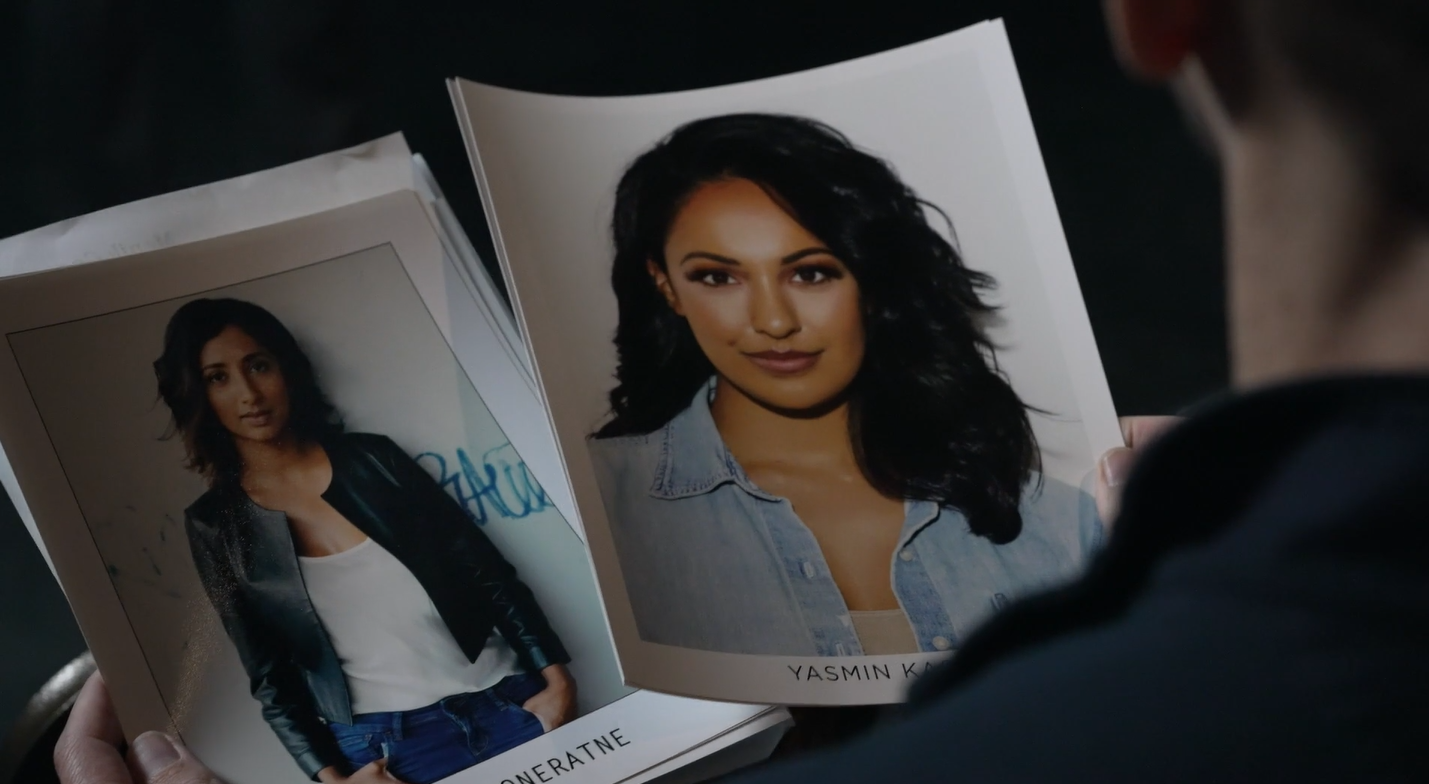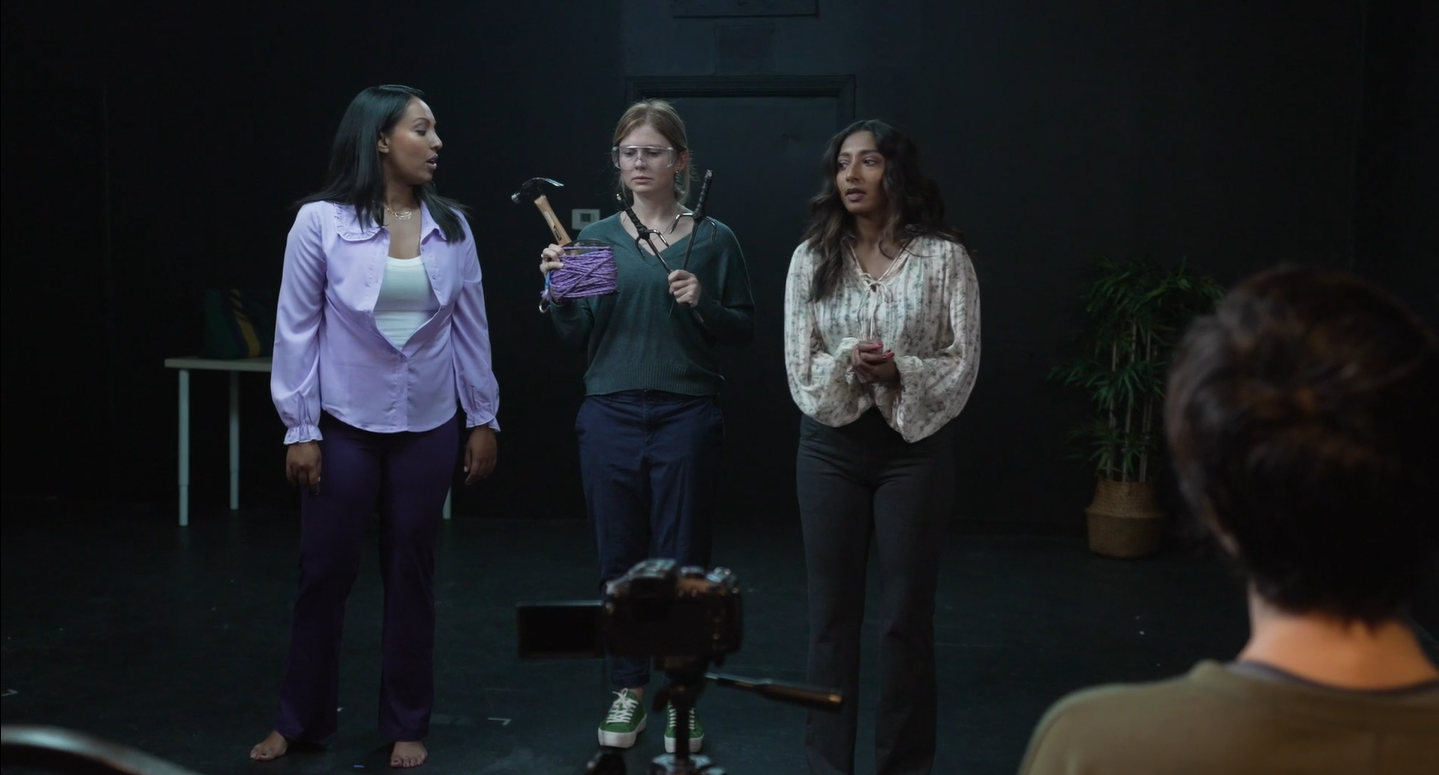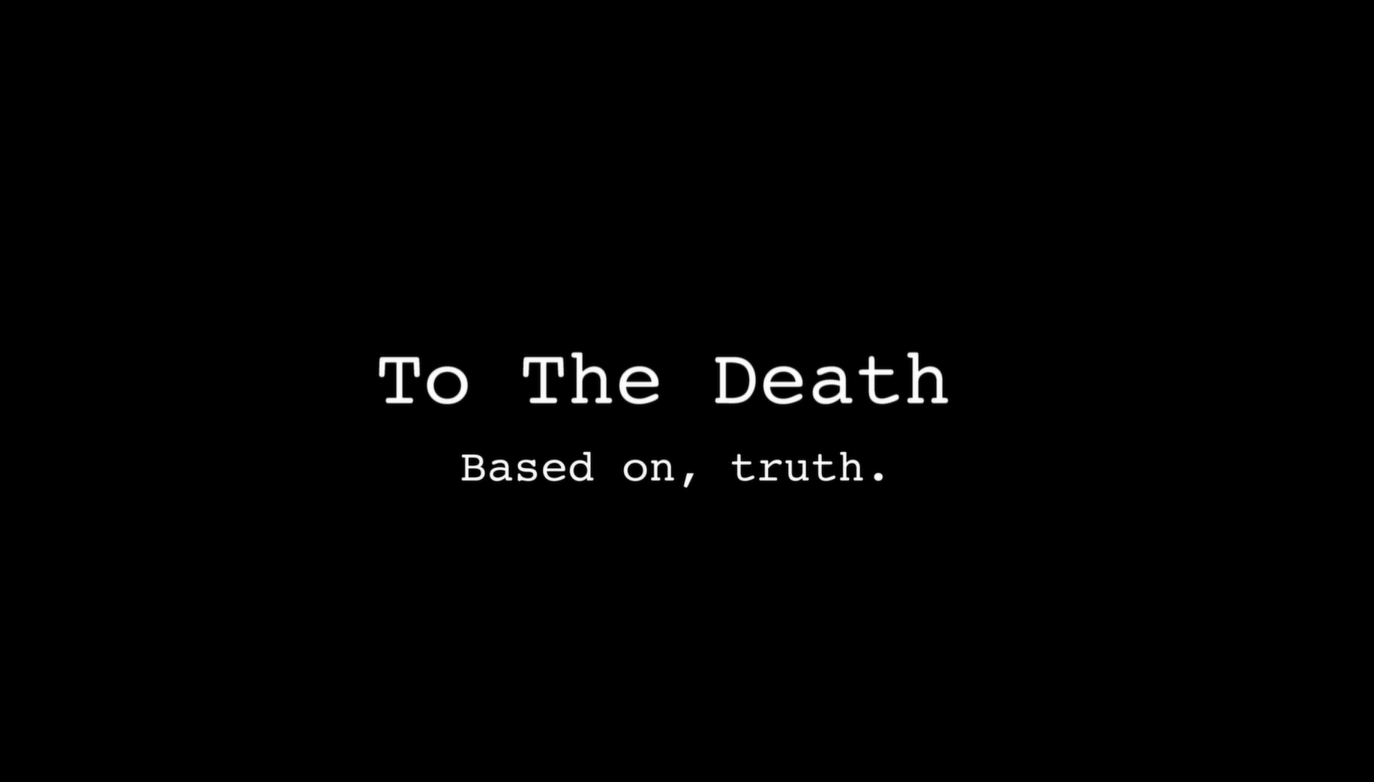There Can Be More Than One: ‘To The Death’ and Navigating Film as a Woman of Colour
by Hannah Torregosa
Image: Still from To The Death
For many actors, the long, gruelling, and hyper-competitive process of booking a gig can often feel like an endless uphill battle. For actors of colour competing for an even smaller pool of roles, this feeling is amplified all the more.
Menik Gooneratne and Yasmin Kassim are two South Asian Australian actors/writers who have worked together to put this feeling to paper and then to screen, having written and starred in the hilarious yet deeply thought-provoking dark comedy short film, To The Death. In the film, the two of them play versions of themselves auditioning for what could be a life-changing gig. While they are told that they are both exceptional actors, they are made to fight to the death for a place in the production since, after all, there can only be one brown person in a show.
"You've given up everything to be here: financial security, emotional security, universal healthcare... Do you know who Simone Ashley had to kill for Bridgerton? No, you don't; you've never heard of her. She's dead.”, says the casting director in the film to them.
Both actors have starred in Australian productions like Neighbours, in addition to making their mark in Hollywood, with Gooneratne featured in films like Lion (2016) and Mortal Engines (2018) and Kassim having starred alongside Daniel Radcliffe in Jungle (2017). Despite having known of each other for years, the short is their first collaboration.
“Our origin story is we're both actors in Melbourne, Australia and always vying for the same roles and because the industry is so small here it kind of felt like there could only be one and we're constantly competing for the same roles which is why we have that animosity towards each other. When you're a POC actor and there's not many roles you kind of feel like a scarcity mentality” says Gooneratne, “We both independently moved to LA and I remember when you [Yasmin] walked in I was like, oh, this chick.”
“Yeah, I felt the same. It was like, oh my god, I have to talk to her?” says Kassim. “She's the girl that's like, we've just been competing for what? Five, six years maybe.” But after taking an improv class together and having coffee, “we realized that we both felt the same way and it actually felt kind of better to not hate each other. So, time passed and then I called, I had this idea where I was like, why don't we work together and I called her and I was like, what if we like made a short where we killed each other?”
“I was like, yeah, absolutely, let's do that. And then it happened” Gooneratne adds. “We just kind of went from there, and the words just spewed out of us, and it was really easy to write once we settled on tone and what we wanted to say, and the rest is history.”
To The Death was directed by fellow actor Rose McIver (The Lovely Bones, iZombie) and the film and its message have been making waves in the international film festival circuit. Aside from making its way to Australian shores and the Melbourne Women in Film Festival, the short has been screened at various film festivals in the U.S including LA Shorts International Film Festival and the Academy Awards-qualifying HollyShorts Film Festival.
Image: Still from To The Death
In Screen Australia’s latest diversity report, which examined the diversity of main characters within 361 scripted Australian TV and online dramas broadcast between 2016 and 2021, the number of non-European main characters has more than doubled since 2016, from 6.9% to 16%. However, this remains below the 25% population benchmark. Representation of LQBTIQA+ characters has increased from 4.5% in 2016 to 7.4%, though similarly, still lower than the estimated 11% of Australians who identify as LGBTIQA+.
First Nations representation, with a population benchmark of 3.8%, has increased from 4.8% to 7.2%, though not without substantial effort. As Angela Bates, Screen Australia's Head of First Nations, states in their media release, “This result shows good progress and it’s not by accident – it represents years of advocacy and consistent hard work… While more work needs to be done, the positive impact that seeing ourselves on screens has on entire communities cannot be underestimated, and all Australians benefit because it adds so much more cultural richness to our screens”.
Compared to general drama, children’s programs display a higher level of cultural diversity regarding First Nations representation (9.1%) and non-European backgrounds (22%). Yet, disability (3.8%) and LGBTIQA+ representation (3.1%) were found to be significantly lower than in general TV dramas.
“This isn't just about us. It's about everyone feeling that way” says Kassim.
Image: Still from To The Death
With the state of the media, arts and entertainment sector being what it is, I asked them what advice they’d have for people trying to navigate it.
“I think it's find your people,” Gooneratne says, “Yaz and I were both on our tracks and we were doing what we were doing”, says Gooneratne. “But there was something magic about us coming together and that idea that we're not in competition. We can elevate each other and work together, even if it's working together on our solo projects, there is something just magic about finding your people and then moving forward as a team. And I think that's the message that we want to kind of bring here which we really felt in LA because the industry is so much bigger.”
“I was going to say it's like realising that you're a special source”, says Kassim, “That's your special source. Everything that ever anyone teased you about or made you different is the thing that will make you successful.”
“Yeah, your brownness is the thing. That's your special,” Gooneratne tells me. “My crazy parents are my special thing. All of those life experiences that you have, no one can tell your story better than you and your story needs to be told. Everyone is special and everyone has that magic and everyone has a really interesting story to tell.”
“Yeah, if I could go back in time, I would tell myself, ‘Stop trying to hide all of the stuff that you think is different about you and stop trying to be like everyone else!’” says Kassim. “Like I truly found my most success by being the most authentic version of myself and sometimes that's not the easiest thing to deal with your family and your friends and when you're kind of coming out as who you truly are. But it's the best thing you can do for yourself and for your art.”
Image: Still from To The Death
With the many clear and continually present flaws of the industry, following this path is not an easy one. Yet that doesn’t mean it’s not one worth taking.
“I love a spreadsheet. So I did accounting, but I also did performing arts, right?” says Gooneratne. “So you're always gonna follow your passion eventually. I'm a parent now as well, and I just know with my children, they're gonna do what they wanna do... And it's [diverse representation] definitely happening. It's happening slowly. And I'm grateful to anyone who is behind the scenes making it happen. The best thing I can do is just support them, help them to get there. And I think the older generation, it's always from a place of, you want the best for your child, and you want them to succeed. And your fears are usually the things that hold you back.”
“You can make a living doing so many different things” Kassim says, “and I probably won't have kids, but if I did, I would really want to just be like, ‘What's the thing that you're good at? Let's lean into that. Let's nurture that.’ Because I think that's what will make you the most successful.”
The film and television industry is improving, perhaps not as much as we’d like it to, but it is. To The Death is just one success story in the rippling cascade of change that Australian artists are continuing to make.




